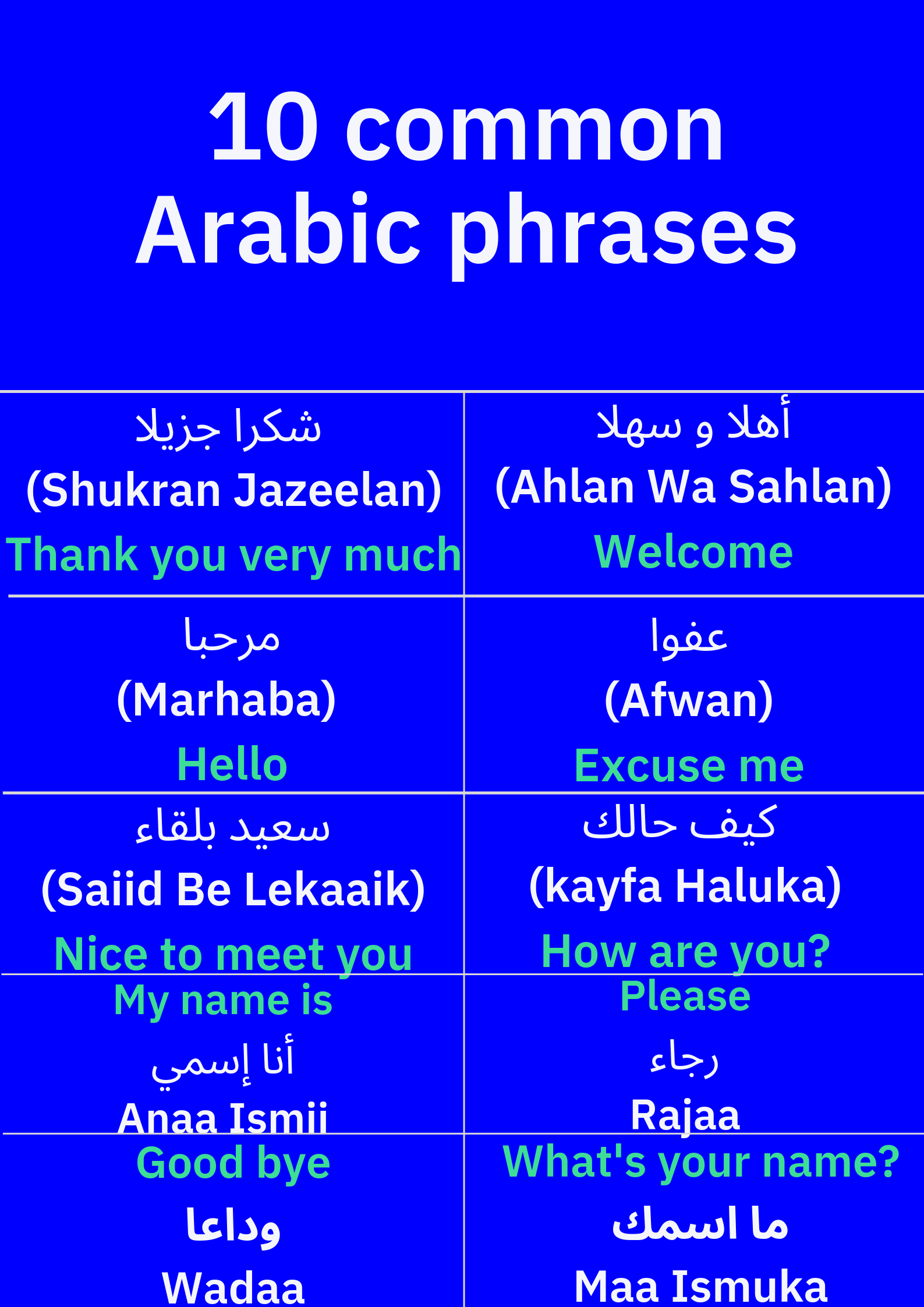
Introduction:
Learning the Arabic language is an enriching and rewarding journey that opens the door to a rich cultural heritage and deep historical roots. Arabic is the fifth most spoken language in the world, with over 310 million native speakers across the Arab world. It is the official language of 22 countries, including countries in the Middle East and North Africa, making it a key language for business, diplomacy, and cultural exchange in these regions. As you embark on your Arabic language learning adventure, you’ll discover the beauty of the script, the intricacies of grammar, and the nuances of expression that make Arabic a unique and fascinating language.
One of the distinctive features of Arabic is its script, which is written from right to left and is known for its flowing and artistic calligraphy. The Arabic script consists of 28 letters, and each letter can take different forms depending on its position in a word. Learning to read and write in Arabic may seem challenging at first, but it becomes an immensely gratifying skill as you progress. The script not only conveys meaning but also reflects the cultural and artistic traditions of the Arab world. As you delve into Arabic calligraphy, you’ll gain a deeper appreciation for the aesthetic aspects of the language and its role in shaping the visual identity of the region.
Arabic grammar is another facet that makes the language both intriguing and unique. Arabic is a Semitic language, and its grammar is based on a root system where words are formed by combining three-letter roots with patterns
- Formal Language Classes: Building a Solid Foundation
Learning Arabic through formal language classes provides a structured approach with professional instructors. These classes cover essential grammar rules, vocabulary, and pronunciation, offering a comprehensive foundation for further language acquisition. It will establish a strong building.
2. Language Learning Apps: Interactive and Engaging
Utilize language learning apps that offer interactive lessons, quizzes, and real-world applications. Apps like Duolingo, Rosetta Stone, and Babbel make the learning process engaging and adaptable to your schedule.
3. Online Courses and Platforms: Flexibility at Your Fingertips
Explore online platforms like Coursera, Udemy, or Khan Academy, which offer Arabic courses designed for different proficiency levels. These platforms often provide flexibility in learning pace and access to diverse resources.
4. Language Exchange Partners: Conversational Fluency
Connect with native Arabic speakers for language exchange. Platforms like Tandem and HelloTalk facilitate conversations with native speakers, enhancing your conversational skills and cultural understanding.
5. Consisting Learning: Surround Yourself with Arabic
Immerse yourself in the language by watching Arabic movies, listening to music, and following news in Arabic. Exposure to the language in various contexts accelerates vocabulary growth and improves comprehension skills.
6. Arabic Language Books: A Literary Approach
Explore Arabic language books and literature to enhance your reading skills. Start with beginner-friendly materials and gradually progress to more complex texts to expand your vocabulary and grasp different writing styles.
7. Flashcards and Vocabulary Apps: Memorization Made Easy
Employ flashcard apps like Anki or Quizlet to memorize Arabic vocabulary effectively. These apps use spaced repetition techniques, helping you retain words and phrases over the long term.
8. Join Arabic Language Communities: Social Learning
Engage with Arabic language communities both online and offline. Platforms like Reddit, Facebook groups, or local meetups offer opportunities to ask questions, share experiences, and practice with fellow learners and native speakers.
9. Travel to Arabic-Speaking Countries: Cultural Immersion
If possible, consider traveling to an Arabic-speaking country for an immersive experience. Living among native speakers enhances language skills rapidly, exposing you to diverse dialects and cultural nuances.
10. Online Language Tutors: Personalized Guidance
Hire online language tutors for personalized instruction. Websites like italki or Preply connect learners with experienced tutors who can tailor lessons to individual needs, providing targeted support and feedback.
Incorporating a combination of these methods into your language-learning journey can cater to different aspects of Arabic language acquisition, ensuring a well-rounded and effective approach.




